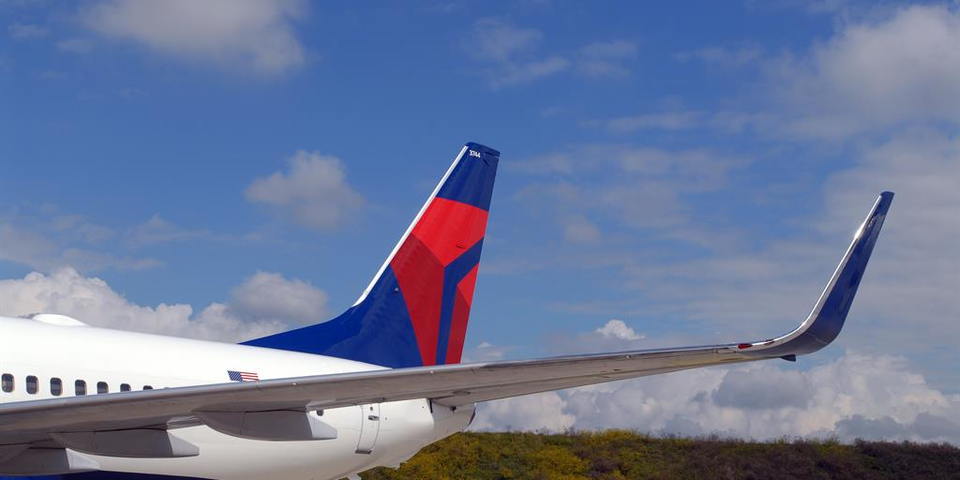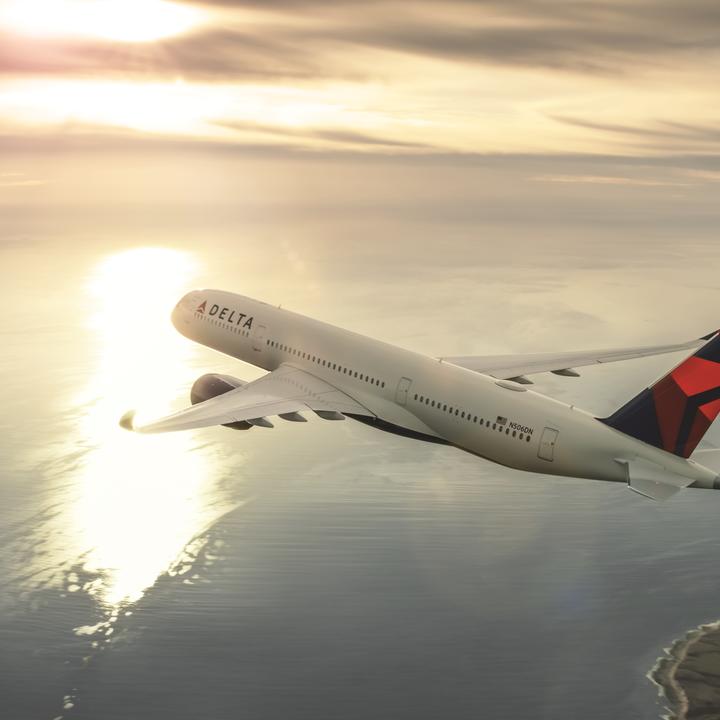Delta, Aero Design Labs testing novel tech to further decrease aircraft emissions
Delta is taking another step toward its goal of net-zero emissions by 2050 as it tests novel drag-reduction technology by Aero Design Labs on its 737-800 and 737-900 fleets. By reducing drag, aircraft are more aerodynamic and use less fuel while in flight.

Editor's note: Delta outlined a roadmap to more sustainable travel on March 7, 2023 that details the airline's strategy for achieving net-zero emissions and more sustainable travel by 2050.
Delta is taking another step toward its goal of net-zero emissions by 2050 as it tests novel drag-reduction technology by Aero Design Labs on its 737-800 and 737-900 fleets. By reducing drag, aircraft are more aerodynamic and use less fuel while in flight.
The companies' memorandum of understanding includes testing and FAA certification of the technology for Delta's 737-800 aircraft starting in the first quarter of 2023, followed by the B737-900 fleet in the second half of the same year. Delta will have the option to purchase Aero Design Lab ADRS kits upon certification to outfit most of its more than 200 aircraft in the two fleets.
"This is part of Delta's overall approach to taking short-, medium-, and long-term actions to reach our goal of net zero by 2050," said Pam Fletcher, Delta's Chief Sustainability Officer. "Our partnership with Aero Design Labs is a great example of how Delta continues to invest in new ways to modify our operations to make an immediate impact on our carbon footprint today, while we work on longer-term solutions to decarbonize our industry."
Chris Jones, Chief Commercial Officer Aero Design Labs added, "Delta Air Lines has a proven history of leading the industry in innovation and we are proud to formalize our agreement and partner in the process to achieve FAA certification. This is a partnership formed by Delta and Aero Design Labs to contribute to the International Air Transport Association (IATA) net zero 2050 carbon reduction targets."
Delta's world-class operations and unique technical capabilities mean that in 2022 alone, Delta expects to have reduced fuel consumption by over 10 million gallons through operational and fleet modifications, such as optimizing flight speeds, improved landing procedures, the installation of enhanced winglets and lightweight landing gear tires.
Mahendra Nair, Senior Vice President - TechOps Operations & Supply Chain Management added, "Delta is excited to expand our partnership with ADL to test and certify both the 737-900ER and 737-800NG drag reduction kits, continuing our investment in fuel efficiency and sustainability improvements."
To learn more about Delta's always-on approach to net-zero, visit Sustainability | Delta Air Lines.


